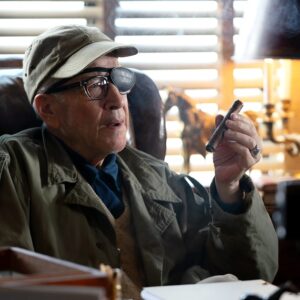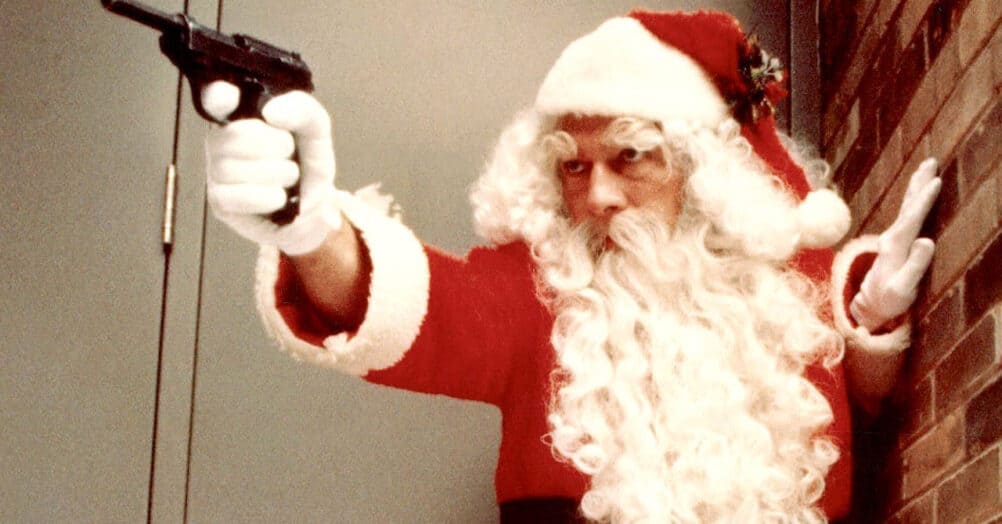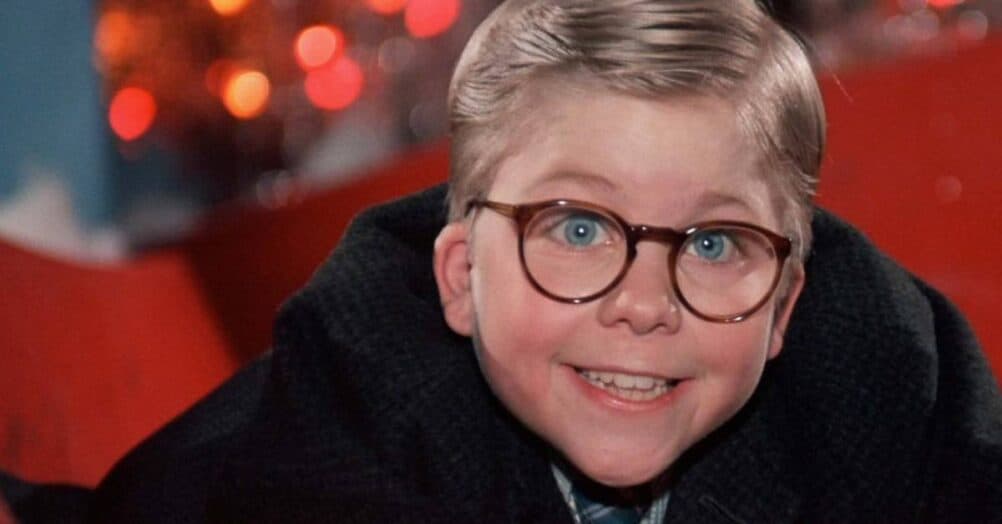Last Updated on August 26, 2024
Date: February 19th, 2024, David Lynch orders a milkshake. It is 2:30 p.m., and that is precisely when he sits down at Bob’s Big Boy every day. It could be day one or the last day of a seven-year run. But it is still a milkshake, and it’s all the same, but never monotonous. It is here, at Bob’s Big Boy – a quintessential American experience – that David Lynch builds his world. And it was in a booth that he met Frank Booth. Not literally – Hollywood’s not that messed up – but through his mind. It was places like Bob’s Big Boy that helped represent David Lynch in the professional part of his career, and before that, he was in love with the design of Coca-Cola bottles and Studebakers. Perhaps he is the greatest American filmmaker to ever live – not the greatest filmmaker born in America but the director who best captures America. Perfectly shaking up the American Dream with American nightmares. Cinema scholars have described his artistic spirit as American surrealist. And if you’re wondering what his favorite cigarettes are: it’s American Spirit. His abstract visual style and haunting sound design have allowed our imagination to enter new realities via strange portals the show us just how absurd our world can be. And even though Twin Peaks: The Return was a return to greatness by this master, it has still been years since David Lynch has directed a major motion picture. Is it because Hollywood didn’t know what to do with the madman? Or maybe cuz he is almost 80… Let’s find out: WTF Happened to… DAVID LYNCH?
But to truly understand what happened to David Lynch we go back to the beginning. And the beginning began when he was born on January 20th, 1946 in Missoula, Montana, the son of a scientist and an English specialist. But picture Blue Velvet and you’ve got a lot of Lynch’s upbringing. He didn’t hide in a closet while a stranger was brutally beaten, but there is that utter fascination with the underbelly of America, less freshly manicured lawns than the bugs and severed ears hidden within. As Lynch put it, “I discovered that if one looks a little closer at this beautiful world, there are always red ants underneath.”
Growing up, David Lynch loved art, going on to study it in college on the east coast, notably in Philadelphia, which was a major influence on his work. It was here that he made his 1967 short Six Men Getting Sick, a plotless piece with a half-dozen figures puking while sirens wail on the soundtrack. Next came 1968’s The Alphabet, just about the most terrifying way to learn it…Through the American Film Institute, he made The Grandmother (1970), another disturbing piece, this time on a boy who plants seeds and grows a human. Finally for his shorts was The Amputee (1974), about, yes, an amputee.
Lynch was on the fringe, that’s for sure. But he had begun filming his debut feature – originally meant to be a short – in 1971, thanks to funding partly from Sissy Spacek (production designer Jack Fisk’s wife) whom he would work with decades later in The Straight Story. But the life and filmography never moves in a straight line, this artist embraces the twists and turns. The shoot on Eraserhead didn’t wrap until 1976, with years off at any given time due to remaining budget issues and a non-traditional script. What resulted remains maybe the most challenging debut ever. Not that we would try to dissect it here, but we can’t stop thinking about that baby…And what about the lady in the radiator, and that hair cut…. Indeed, during filming, Lynch discovered Transcendental Meditation, saying it made him feel as if “heaven is a place on earth.” Off of that connection, are we to believe that the world of David Lynch is actually not one of fear but of hope? Does it contain the American Dream? Lynch would use TM as a constant part of the creative process, which he likened to “catching a fish” in that you have to dive deeper for true discovery.

Discoveries of the American kind would have to wait as Lynch set off to London to make The Elephant Man (1980), which is an odd follow-up but he was forced into it after Ronnie Rocket fell apart. An even stranger connection is Mel Brooks, who loved Eraserhead so much that he championed Lynch – who he called “Jimmy Stewart from Mars” – for the job. Through it, he earned his best Best Director nomination. And so the next reasonable route was a high school comedy, having been scouted by Cameron Crowe to direct Fast Times at Ridgemont High. Thankfully (or regretfully from a viewer’s perspective?) he turned it down, as he did Return of the Jedi, instead focusing on Dune (1984). A flop of monumental proportions, Lynch didn’t have final cut and so wound up being “sickened” by the studio’s involvement and called it a “horrible sadness and failure.”
And so back to the suburbs of America he went, exploring the depraved, PBR-soaked underbelly of the country he called home. Blue Velvet, as Lynch put it, was “a dream of strange desires wrapped inside a mystery story” – but what isn’t in the world of David Lynch? For it, he earned his second Oscar nod.
Lynch opened up the ‘90s with the punk rock arthouse adventure Wild at Heart, winning the Palme d’Or at the Cannes Film Festival. But the mysteries and complexities of the unknown that were right in front of us drew him to a town of 51,201: Twin Peaks. Premiering somehow on ABC in 1990, the genesis of Twin Peaks, which Lynch created with Mark Frost, came in a discussion over a corpse washing ashore, basically the first scene of the show. A spectacular start that still haunts viewers 30 years later, the show ended after a ratings sag following the reveal of Laura Palmer’s killer. But Lynch wouldn’t be done with his weirdo America, directing prequel Fire Walk with Me the year after. That, like the second season, was hardly a hit, with one critic saying it “felt” like the worst movie ever. But, no, Lynch wouldn’t be done yet, returning to Twin Peaks for an 18-episode “third season” called The Return. This was the reaction the show always deserved, landing on numerous best-of lists and marking itself as one of the finest seasons/miniseries in TV history. (His other early ‘90s works, 1992’s On the Air and 1993’s Hotel Room, were short-lived and barely even for completists.)
In 1997 came Lost Highway (1997), another mindf*ck with riddles inside of riddles and some of the most twisted people ever put on film (we’re looking at you, Robert Blake!). It, like most of his other works, called to mind Lynch’s obsessions with “the eye of the duck”, an analogy that sought to find the true understanding of a subject. Can we ever truly understand the works of David Lynch?
David Lynch is a committed man who certainly knows the answers we all ask, but he is also a walking conundrum. He has said both “darkness stems from a reflection of the world” and “negativity is just like darkness”. Wouldn’t this mean that negativity is linked to how we see the world? Then why did we also believe his “heaven is a place on earth” mantra? Many of us, it turns out, will follow David Lynch wherever he goes.
And so we followed him in 1999 as he embarked on a journey – via tractor – not in the ‘burbs but the plains. The Straight Story. It, like The Elephant Man, felt truly off-kilter compared to everything else he ever did, yet Lynch calls it his “most experimental”. With a G rating and working under Disney, it was truly an odd choice…Then again, is it? As a believer in reincarnation, we must believe that Lynch would want to reinvent himself in some form, to surprise both himself and his audiences. Whether it’s shifting from film to digital in the 2000s or focusing on web shorts like Rabbits and Dumbland or analyzing the American aesthetic from North Carolina to Wisconsin to Hollywood.

In 2001, Lynch sought to return to TV, developing a pilot that would soon be weaved into Mulholland Drive, one of the most complex and confusing films we can wrap our minds around. It’s so goddamn befuddling that Lynch would have to give his fans a list of clues to even begin to figure it out. On it, he said, “I love people analyzing it, but they don’t need me to help them out. That’s the beautiful thing…” That “beautiful thing” has guided us through most of his filmography. And while Mulholland Drive is set in Los Angeles, one of its themes is the depravity that lurks within; are the Hollywood Hills really all that different than the white picket fences of Lumberton? Aren’t they both really what America is about?
Mulholland Drive is generally considered one of the best films of this century. And for it, Lynch earned his third Best Director nod. He, again, would not win. Instead, he would have to wait for his Honorary Oscar in 2019, delivering a brief speech in which he partly told his audience, “You have a very nice face.” Not a stranger to accolades, he also has a Cannes award and two wins from Venice.
Inland Empire, Lynch’s next feature, was even more mysterious and divisive, earning both glowing reviews and others that would consider it a failure. But who is anyone to label a movie a failure if they can’t comprehend it? Inland Empirealso saw him team up with Jeremy Irons, an actor he worked with in Lolita, a film we have to mention here because Lynch’s take is lost media. Yes, after Kubrick and Lyne, Lynch took a shot at adapting Nabokov’s controversial book but, ultimately, couldn’t get it off the ground. Can you imagine the mind of Lynch trying to deal with the complex, and often unethical, subject matter of that book? Perhaps we are better off without it.
Instead, he kept the art weird. Lynch is a musician who has released three studio albums – Crazy Clown Time (2011), The Big Dream (2013) and Thought Gang (2018) – showing that not all Americans dream the same. He has also directed music videos for the likes of Moby and Nine Inch Nails, proving that art can influence art. And in 2011 he appeared in a short to help explain the use of Med Lynch was a devoted painter and sculptor, known for his raw, immersive artworks that often incorporated found objects and industrial materials. His art exhibited a similar unsettling quality as his films, with themes of darkness, decay, and dreams. Lynch’s work as a visual artist provided insight into the mind behind the movies, adding depth to his already profound influence on the world of cinema.
While David Lynch’s filmography will always have a solid place in American film history, it’s his influence and inspiration on other filmmakers that truly cements his legacy. His focus on absurdity and surrealism, his dialogue full of ellipses, his shooting style that feels like the camera itself is a supporting character, his love of jazz and music, and his fluid interpretation of the word and concept of reality. And while he has a reputation for making works that “disturb, offend, or mystify” the audience, it has also earned him multiple Academy Award nominations: a screenplay nomination for The Elephant Man, and Best Director nominations for The Elephant Man, Blue Velvet, and Mulholland Drive.
In August of 2024, Lynch did not announce any new projects for film or television. Instead, he is working on a new short film that will debut at the New York Film Festival later this year.
So what happened to David Lynch? Nothing. The more things change, the more things stay the same. Like a milkshake at Bob’s Big Boy, the world of David Lynch is a strange, surreal place that feels both familiar and alien at the same time. And maybe that’s why we keep coming back to it, again and again.




















Follow the JOBLO MOVIE NETWORK
Follow us on YOUTUBE
Follow ARROW IN THE HEAD
Follow AITH on YOUTUBE